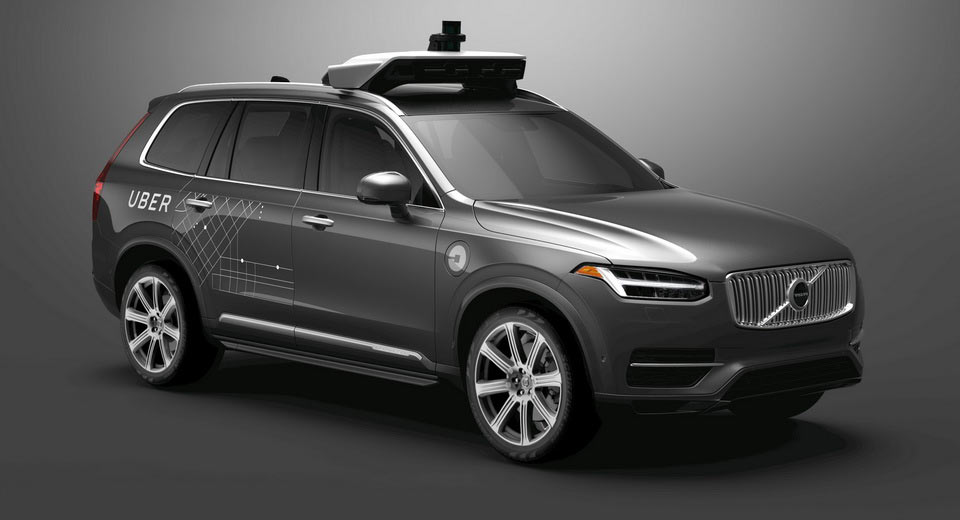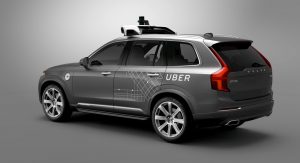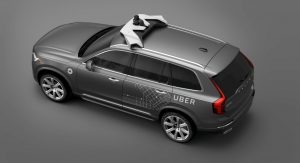Volvo will be supplying ride-sharing giant Uber with up to 24,000 autonomous drive compatible vehicles between 2019 and 2021.
These cars will be based on Volvo’s fully modular Scalable Product Architecture (SPA), which is currently being used on the Swedish automaker’s 90-series cars, as well as on the new XC60 SUV.
“The automotive industry is being disrupted by technology and Volvo Cars chooses to be an active part of that disruption,” said Volvo boss, Hakan Samuelsson. “Our aim is to be the supplier of choice for AD ride-sharing service providers globally. Today’s agreement with Uber is a primary example of that strategic direction.”
These base XC90 premium SUVs that will be supplied to Uber feature all necessary safety, redundancy and core autonomous driving technologies required by the ride sharing company. The only thing left for Uber to do is add its own self-driving features.
“We’re thrilled to expand our partnership with Volvo”, said Uber’s head of auto alliances, Jeff Miller. “This new agreement puts us on a path towards mass produced self-driving vehicles at scale.”
When asked when Uber might be debuting these self-driving cars in the U.S., Miller told Autonews that it’s “sooner than most people think,” adding that his company’s objective is to “be able to operate them [the cars] without anyone behind the wheel in select cities and environments.” In other words, he’s talking about Level 4 autonomous driving, as level 5 is still far off into the future.
“I don’t know of anyone in the world who is saying they will be able to do Level 5, which is autonomous all the time everywhere in every use case.”
Even though Uber won’t be fiddling with the XC90’s powertrain, Miller also said that several modifications had to be made to the car’s steering and braking systems.
“Those are two elements that we are making modifications to so the vehicle can operate as a Level 4 autonomous vehicles as opposed to just Level 2 or Level 3. We also have to embed sensors around the vehicle. In addition to what you see on the roof, there are several sensors behind the fascia of the vehicle.”
Of course, the fact that they’re starting off with the existing XC90 makes things easier on both companies.
“This would not be possible if it was a special [one-off] vehicle,” confirmed Samuelsson.
While providing Uber with these AD-compatible cars, Volvo will also use them for its own independent autonomous car strategy, which should lead to the release of a fully autonomous model in 2021.






